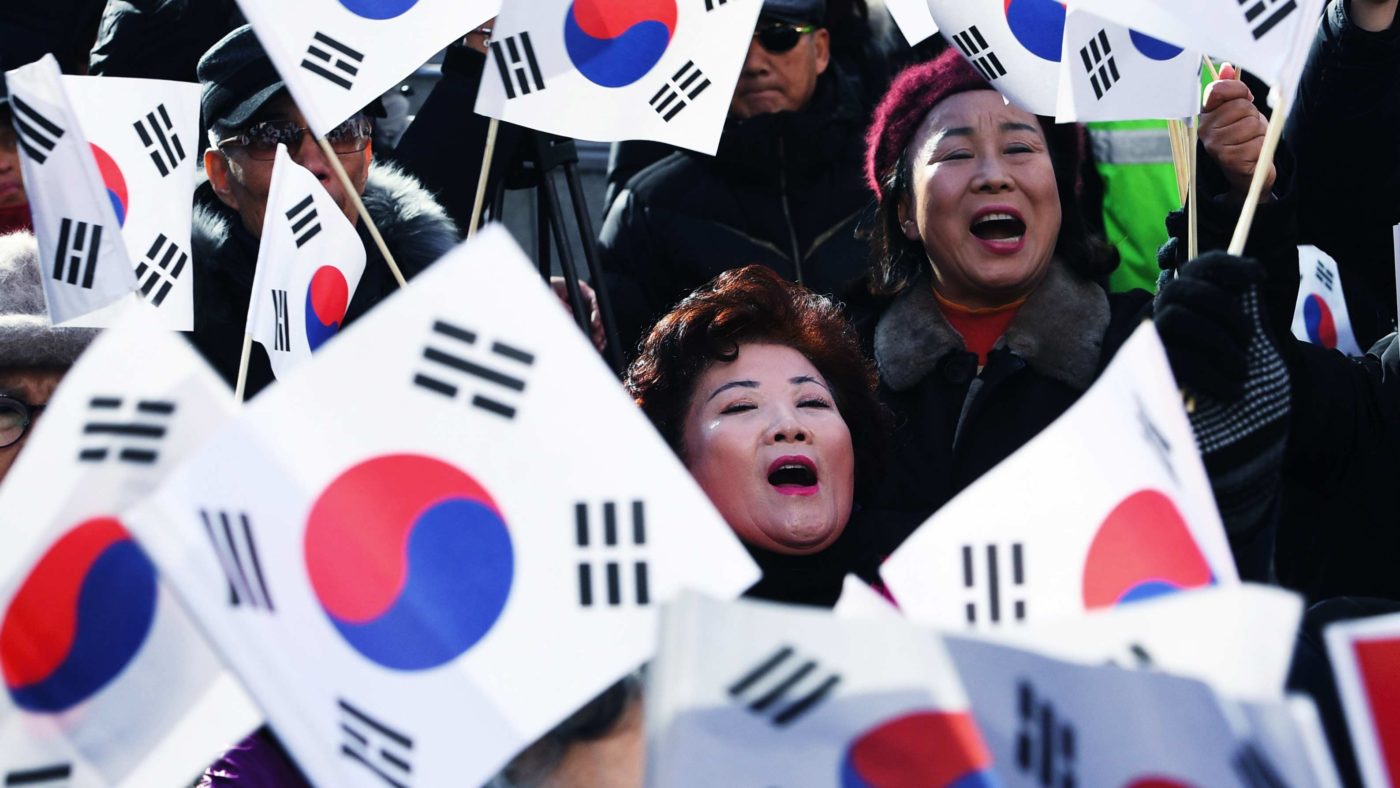In the wake of the corruption crisis, South Korea’s new government is eager to show the public that it is an improvement on the previous administration. Among other things, they have promised to crack down on the bosses of major firms in South Korea. But by doing so, they would be dealing with the symptoms and not the underlying disease.
No secret has been made of the close links between government and private sector. Indeed, South Korea’s transition to a developed, global economy was the result of a joint project between the government and the major Chaebols – large, business conglomerates controlled by families – that make up much of its modern economy. For many years, the system’s export-led global growth brought prosperity to millions of South Koreans.
But any large, sustained level of growth, such as that in South Korea, has unintended consequences, prompting the need for adjustments and reform. The close relationship between public officials and corporate titans – normalised by the Confucian esteem for authority – was at the root of the recent corruption scandal that led to the impeachment of former President Park Geun-hye. Given the cultural dynamic, it’s not surprising that business leaders made questionable financial contributions at the government’s request.
While South Korea pushed exports, it restrained competition at home, giving certain preferred companies a privileged position both domestically and in the international marketplace. And there are marked economic distortions as a result. But economies do best when they are characterised by property rights protection, open trading environments, and competition. This creates not only material wealth but the intangible wealth of that comes when people apply their hard work and their savings to their property and ideas, and by doing so, realise their cultural and personal ideals.
We have looked at the impact of economic distortions across property rights, trade openness and domestic competition in South Korea, and although it scores well in property rights protection and trade openness, its domestic regulatory environment is what drags down its overall performance.
By optimising trade liberalisation, property rights protection and competition, South Korea could see a increase in the size of its economy by as much as 250 per cent. Naturally, no country can completely optimise these factors but this potential should be an aspiration for the new leaders. Assuming a reasonable time period for these changes to be worked through (such as 20 years), we estimate a GDP per capita gain would be on the order of a ten per cent.
Many countries that have mirrored South Korea’s mercantilist policies – in which exports are good and imports are bad – have experienced growth and reform but are also susceptible to cronyism. The problem with cronyism is that once it is in place, it becomes very difficult to remove. It’s even more difficult when the relationship is between government and business – where each is tied to the success of the other. The elites who benefited from the economic distortions of cronyism tend to fight very hard to preserve the status quo. Together, they form a formidable resistance to change.
I saw this first-hand in the dispute between Telmex and a new entrant in the Mexican telephony market, AT&T, in the mid-1990s. The dispute centred around allegations that Telmex had acted in anti-competitive ways. I was always careful not to be critical of the company or Slim personally, as any company will act in ways that maximise profit in the environment they find themselves in. If the environment contains distortions, then companies will take advantage of it.
In South Korea’s case, the new government needs to focus its collective energies on addressing the underlying economic opportunities, instead of focusing on punishing those business leaders, such as Lee Jae-yong of Samsung, who capitalised on the prevailing circumstances.
By easing regulations, enabling more domestic competition and openness, and protecting property rights, South Korea could improve its business and governing culture. But the government risks harming the economy if in its pursuit of companies like Samsung, it caused them to lose their competitive edge in the global market. Toppling its leadership without revising the broader system is more a statement than a policy.
These challenges present an opportunity for UK high tech companies – a chance to gain ground against their South Korean competitors. As long as UK companies are able to operate in an environment that favours competition over intervention, there is an opening for them. Obviously, much depends on the industrial policy review initiated by the Department for Business, Energy & Industrial Strategy: it must ensure that UK innovators are operating in an environment in which they can be successful, and not one that favours large incumbent companies. In this respect, the Korea example has much to teach us.


